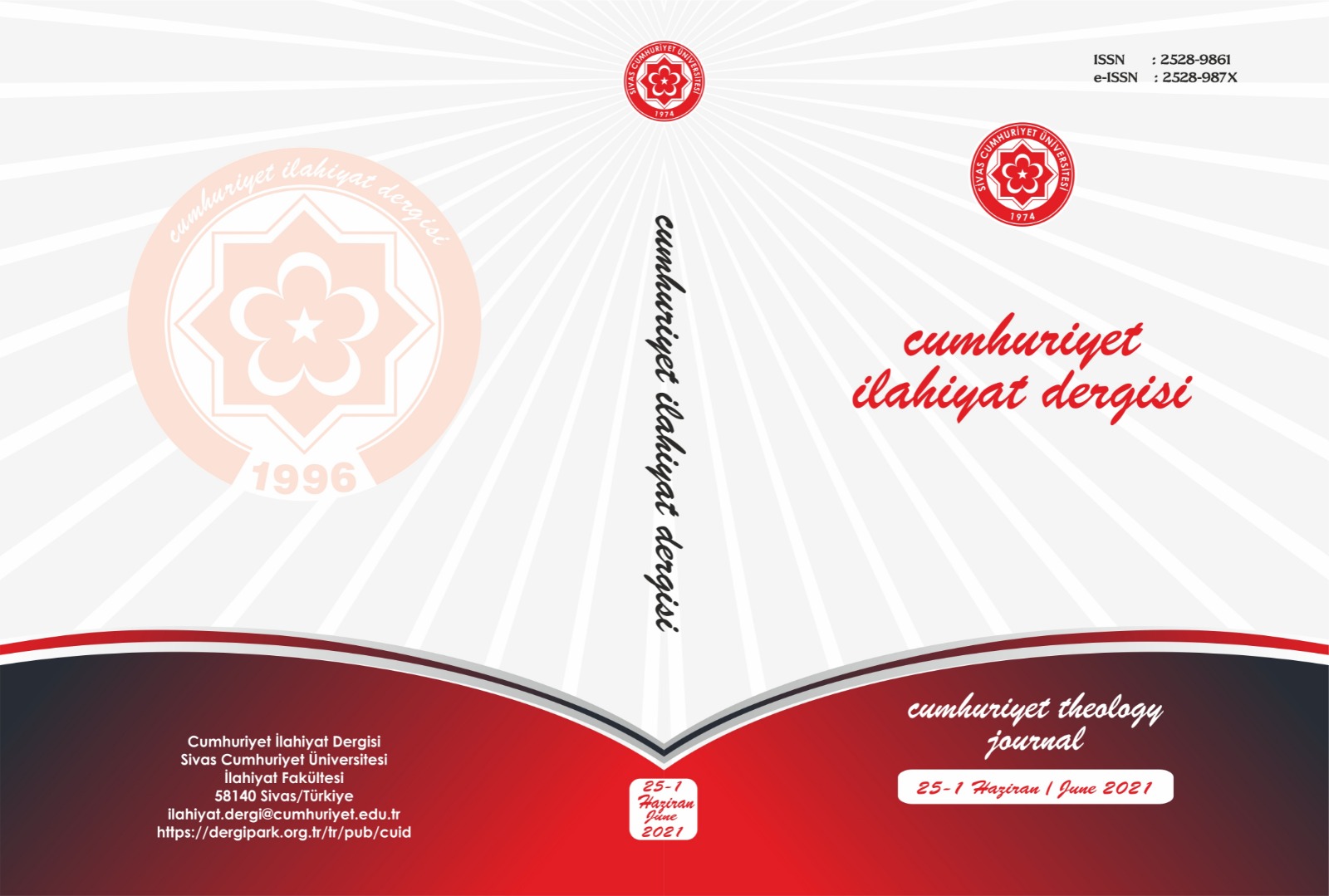Medine Sözleşmesi Bağlamında Birlikte Yaşama Kültürü
The Culture of Coexistence in the Context of the Medina Agreement
Author(s): Hüseyin YılmazSubject(s): Education, Theology and Religion
Published by: Cumhuriyet Üniversitesi İlahyat Fakültesi
Keywords: Religious Education; Multiculturalism; The Prophet Muhammad and Coexistence; Madinah State; the Madinah Agreement; The Culture of Coexistence; Freedom of Belief;
Summary/Abstract: As a natural result of globalization and migration from village to city, peace, ease, and happiness of people who have to coexist in cities are extremely important. Beliefs, systems, ideologies, and institutions aim to achieve this. This situation forces individuals and groups who live together , whether they want to or not, to get to know and communicate with each other within a trust environment. The most important factor that makes recognizing segments of society with different characteristics and communicate with them in a healthy way is to develop a culture of coexistence among the community members. Coexistence means that people with different identities and affiliations are united around the citizenship denominator and contributing to the continuation of social life in unity and solidarity. This understanding must be transformed into a cultural consciousness in the community members. Because, polarization, marginalization, discrimination, and violence become common among individuals who live in societies where the culture of living together and the awareness of citizenship are not developed. It is not possible to ensure coexistence only by law. In societies where a culture of cohabitation develops, differences are not seen as a cause of separation, but as a richness that diversifies society and gives dynamism to social life. In societies dealing with political, social, economic, and moral problems, religion, language, race, ethnic identity, and regional sense of belonging might be more likely used as terrorization tools. The self-confidence that accurrate religious knowledge gives to individuals might weaken such a possibility. Islam anticipates a social system that facilitates a pecaful and easeful life for the people. Giving importance to principles such as love, respect, tolerance, justice, consultation, assistance, and solidarity in the Qur'an is an indication of the need for this system. The Prophet Mohammad had the opportunity to apply an example of this system in Madinah anticipatedin the Qur'an in Madinah. After the migration, some principles related to the basic rules of coexistence were included in the Madinah agreement, which the Prophet signed with representatives of different segments living in Madinah. It is very important that these principles are able to shed light on the issues happenin in the recent world. The experience of living together in the time of the Prophet Muhammad (pbuh) should be introduced to the next generations with correct information. Because, The Medina Agreement, which has an important place in the history of Muslims, is an important example of the ability to live together in peace and ease by maintaining differences in society. The Medina Agreement is the first written document that allows different groups of people residing in Medina to live together. The main purpose of this agreement, which the Prophet made with the Jewish, Christian, and polytheistic tribes in Medina after the migration, is to protect the fundamental rights stemming from the citizenship of people who live in the same city by having different faiths and cultural values. If so, the Madinah Agreement might be an example for many societies that recently experience discord and unrest due to their characteristics such as religion, language, race, political thought, and etc. In this regard, this article focuses on the importance of the culture of coexistence in the context of the Madinah Agreement and the process of formation of this culture and offers some suggestionsthat will facilitate peace and ease for different groups living in the same society. Some of these suggestions are as follows: Differences such as language, religion, race, culture, and political thought among the realities of social life should not be seen as an element of discrimination, everyone should contribute to the peace and well-being of society by combining in the common denominator of citizenship. In educational institutions, it should be taken into account values such as human love, respect for the other, tolerance, freedom of thought, empathy, and peace. In addition to educational institutions, all segments operating in the field of law, politics, economics, religion, and media should unite, and thus, should develop a consciousness of citizenship in society, where differences in race, religion, language, culture and political views are seen as richness.
Journal: Cumhuriyet İlahiyat Dergisi
- Issue Year: 25/2021
- Issue No: 1
- Page Range: 239-258
- Page Count: 20
- Language: Turkish

